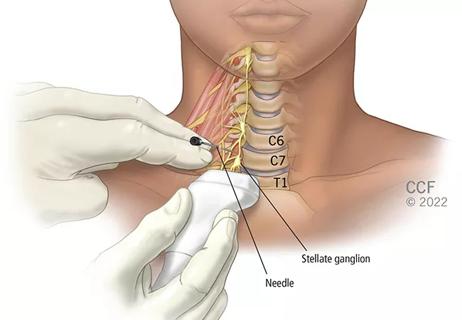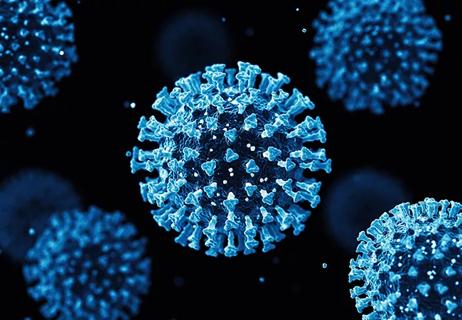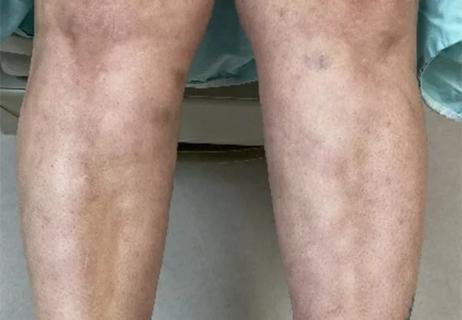Decreases risk of hospital and ICU admission in COVID-19 patients with obesity

Prior research has reinforced obesity as a major risk factor for poor outcomes in patients with COVID-19. Now, a study conducted at Cleveland Clinic has shown that bariatric surgery may substantially improve the prognosis for these patients.
Advertisement
Cleveland Clinic is a non-profit academic medical center. Advertising on our site helps support our mission. We do not endorse non-Cleveland Clinic products or services. Policy
The peer-reviewed study, published in the Surgery for Obesity and Related Diseases journal, was conducted using data from the registry of all patients in the Cleveland Clinic health system testing positive for the SARS-CoV-2 virus. Of the 4,365 identified as positive between March 8 and July 22, 2020, 482 had severe obesity. A total of 33 patients had undergone prior bariatric surgery. They were closely matched 1:10 to nonsurgical controls with severe obesity (mean body mass index [BMI] of 46.7) at the time of SARS-CoV-2 testing.
The researchers found that 44.8% of controls and 18.2% of bariatric surgery patients were admitted the hospital with COVID-19. Of these, 13% of controls were admitted to the ICU, 1.5% needed dialysis, 6.7% required mechanical ventilation and 2.4% died.
No patients who had undergone bariatric surgery required ICU admission, mechanical ventilation or dialysis after contracting SARS-CoV-2 infection, and none died.
“These findings suggest that bariatric surgery improves patients’ overall health profile, which may lead to better outcomes in those with COVID-19,” says Ali Aminian, MD, Director of Cleveland Clinic’s Bariatric & Metabolic Institute and first author of the study. “Patients are healthier following bariatric surgery, which may result in a less-severe form of SARS-CoV-2 infection and a better prognosis.”
The association between obesity and COVID-19 outcomes is plausible, says Dr. Aminian.
“The co-existence of a pro-inflammatory state, with high levels of cytokines and oxidative stress due to excess fat, impairments in the immune response, restrictive changes to the mechanics of the lungs and chest wall and limited response to mechanical ventilation may contribute to a poor prognosis in COVID-19 patients with obesity.
Advertisement
“Bariatric surgery leads to substantial and sustained weight loss and an overall improved health profile. The reduction in excess adipose tissue reduces the inflammatory response, enhances immunity, improves cardiopulmonary and renal function and reduces the risk of major cardiovascular events. This improvement in cardiometabolic risk factors likely accounts for the improved clinical outcomes in patients with severe obesity who test positive for SARS-CoV-2,” he explains.
While advanced age and black race have also been identified as independent predictors of hospitalization for COVID-19 infection, in this study the association between bariatric surgery and the study outcome was greater than the effects of age and race.
“COVID-19 is a disease that disproportionately targets older and disenfranchised communities. The benefits of bariatric surgery may counteract the detrimental effects of age and race on patients testing positive for SARS-CoV-2 infection,” says Dr. Aminian.
Among the 33 bariatric surgery patients, 20 had undergone sleeve gastrectomy; 13 had Roux-en-Y gastric bypass surgery. The median interval between surgery and positive SARS-CoV-2 test was 46 months. During this time, their average BMI decreased from 49 at the time of surgery to 37 at the time of their SARS-CoV-2 test. Prior to surgery, 9 patients had diabetes and 21 had hypertension. At the time of their positive COVID test, only 2 patients had diabetes, and the need for antihypertension medications significantly decreased.
Advertisement
“By addressing obesity, we can prevent the negative health effects associated with obesity in addition to the heightened risks associated with this pandemic,” says Dr. Aminian. “Improved prognosis with SARS-CoV-2 infection can be added to the list of potential benefits of bariatric surgery.”
Advertisement
Advertisement

Patients report improved sense of smell and taste

Clinicians who are accustomed to uncertainty can do well by patients

Unique skin changes can occur after infection or vaccine

Cleveland Clinic analysis suggests that obtaining care for the virus might reveal a previously undiagnosed condition

As the pandemic evolves, rheumatologists must continue to be mindful of most vulnerable patients

Early results suggest positive outcomes from COVID-19 PrEP treatment

Could the virus have caused the condition or triggered previously undiagnosed disease?

Five categories of cutaneous abnormalities are associated with COVID-19